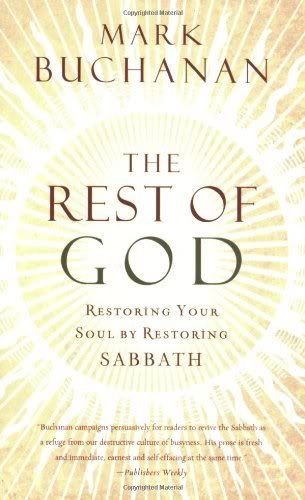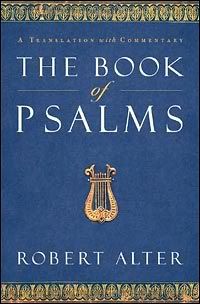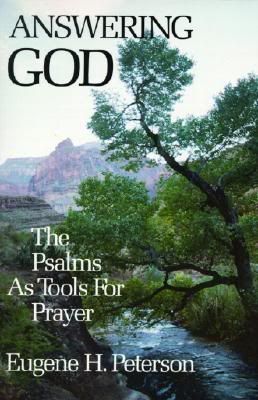Over the last couple years, I've been trying to take a Sabbath once a week. Basically, I'm attempting to have one day in the week that's set apart to be different than the other 6 days. A day to remind myself that I'm created, I'm not immortal, and that I'm sustained by a Hand infinitely stronger than mine. It reminds me to be a child again, to breathe a little deeper, and to not shoulder the cares of the world alone. In the words of Eugene Peterson, the Sabbath is a day to "pray and play". Initially I felt like I was able to find the sacredness of the day and really attempt to make it different, but over time it's gravitated back towards a usual day and less "set apart". I find myself tasking and not being. I find myself not praying or playing. As I sit down to pray, to listen, and read, I end up picking up my iPhone and checking Twitter or Facebook, or reply to an email that could have easily waited till the next day. Then I'll get back to what I was doing, but sure enough, a few minutes later I'm back on my email. Have I become a slave to technology & immediacy? Am I really not able to simply focus on one thing or person for an extended period of time?
Not only does this affect my times spent with God but it also affects my time spent with others. With my wife, friends, and co-workers. As I'm in conversation with them, I'll get a text, a voicemail that I "need" to check, a phone call I "must" take. Charles E. Hummel wrote a short a short essay titled "Tyranny of the Urgent", where the basic idea is that we too easily allow the "urgent things to crowd out the important ones." I find this to be profoundly true in my life. When I look back at my life in 15 years, what will I think the truly important things were? What were the urgent ones? It's almost as if the only reason I attend to the urgent ones is because they're yelling a little louder than the important ones. I don't want to lose the important ones in the volume difference. How will my wife remember me? Our kids? Our friends? Was my time spent on people or tasks that could have waited?
I've had a couple thoughts about this since this frustration's been hitting:
First was a quote I read Mark Buchanan's book "The Rest of God: Restoring Your Soul By Restoring Sabbath". He asked the question, "If people stop to listen to you, to whom are you stopping to listen?" It's a great question simply because it reminded me of where the weight of my words come from. He went on to say, "Our speaking comes out to our listening. What we say comes out of what we hear. We have to be people who listen, day and night, to God." This was true of Jesus, who said he only would do what he saw the Father doing. I hope I could say the same of myself, but so often I'm not looking for what the Father is doing. I'm not listening to what the Father is saying. In a sea of noise, would I hear the Voice that created all voices. I must remember to slow down to listen.
The second thought came yesterday during church as we read from Mark 1:35, which says, "And rising very early in the morning, while it was still dark, he departed and went out to a desolate place, and there he prayed." The word that stood out to me was desolate. As I set apart time to listen, there are distractions all around me. "Desolate" would not be the appropriate adjective to describe my times with God. I'm not saying the distractions are in and of themselves "bad things", but in that moment, they're not the best thing. I need to learn from Jesus' example to find a time in the day (for him it was very early in the morning) and in a setting that wouldn't offer distractions in order to listen and be with God. To be in silence. To confess my need. To beg for help. To thank him for all He's done, is doing, and will do. Perhaps it's in the desolate places that we'll find fullness.





